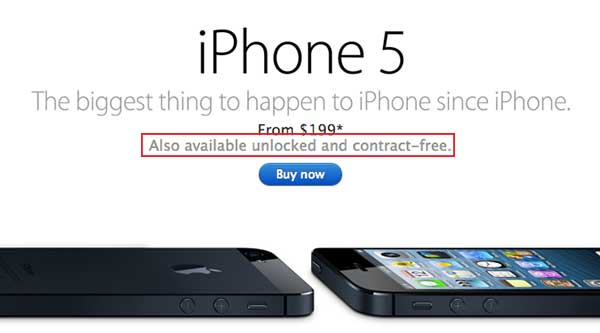U.S. Sen. Al Franken and members of the Senate Judiciary Committee have introduced bipartisan legislation that would allow users to legally unlock their smartphone once their contract subsidy has concluded.
The Democrat from Minnesota announced on Tuesday that the "Unlocking Consumer Choice and Wireless Competition Act" would restore an exemption to the Digital Millennium Copyright Act and allow users to unlock their cell phone once their contract expires.

Joining Franken were Judiciary Committee Chairman Sen. Patrick Leahy (D-Vt.), Judiciary Committee Ranking Member Sen. Chuck Grassley (R-Iowa), Sen. Orrin Hatch (R-Utah), and Sen. Mike Lee (R-Utah).
The senators defined the bill as a "narrow and common sense proposal" that they believe will promote competition and improve consumer choice.
The bill was prompted by a Library of Congress ruling made in late 2012 that determined cell phone unlocking would be removed as a legal exemption from the Digital Millennium Copyright Act. As of Jan. 26, 2013, unauthorized unlocking of all newly purchased phones became illegal. "This bipartisan legislation will quickly allow consumers to unlock their current phones instead of having to purchase a new one." — Sen. Al Franken
"Right now, folks who decide to change cellphone carriers are frequently forced to buy a new phone or risk the possibility of criminal penalties, and that’s just not fair for consumers," Franken said. "This bipartisan legislation will quickly allow consumers to unlock their current phones instead of having to purchase a new one. I support this commonsense solution to save consumers money."
Last week, President Barack Obama's administration also came out in support of legalizing the unlocking of cell phones and tablets. Their endorsement was given in response to a White House petition created by Sina Khanifar, which to date has received nearly 115,000 signatures.
Khanifar spoke with AppleInsider last month and said he frequently travels from Europe to San Francisco, Calif. Those international trips have made cell phone locking not only a nuisance, but also a financial burden.
"Anyone who travels internationally, and most people do at some point, you won't be able to take your cell phone with you," he said. "Trying to use it with the existing roaming fees that carriers charge is almost impossible because they're so exorbitant."
The proposed Senate bill would alleviate those issues for consumers like Khanifar. A similar bipartisan bill is also expected to be introduced in the House of Representatives this week.
"It just makes sense that cell phone users should be able to do what they want with their phones after satisfying their initial service contract," Hatch said. "This bill reinstates that ability, while also ensuring that copyrights are not violated."


